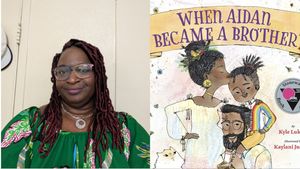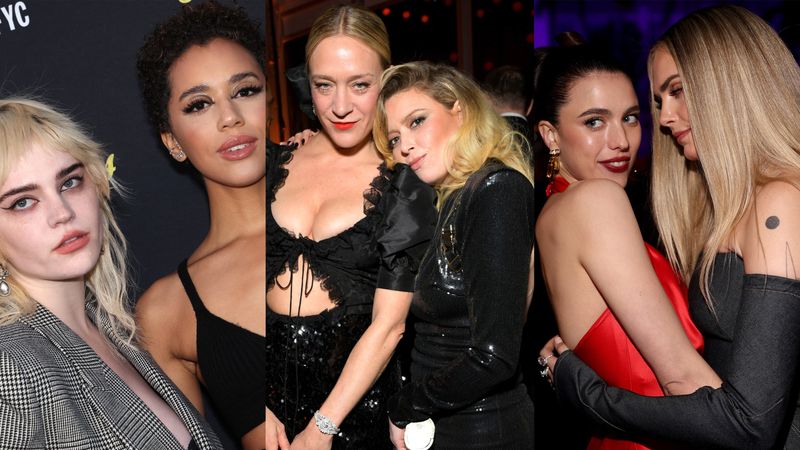In Response to “Fear (Again) of Flying: The Domestication of the Female Midlife Crisis” from the New York Times Magazine
While Judith Warner’s fluff piece on women and Yoga was clearly edited for typos and run-on sentences, I’m curious if anyone actually bothered to consider the ideas that it put forth. This article masquerades as a self-help guide to liberate the modern woman from some of the intensity of running a home, but in actuality it is promoting the idea that women focus on inward perfection in the confines of the “Downward Dog” position instead of worrying about why their problems exist in the first place. This sentiment of “be contented” doesn’t seem so controversial on its own, but when placed alongside a forgetfulness about why the feminist movement was created and a complete abhorrence of any sort of revolutionary sentiment, it becomes incredibly subversive to modern feminism.
Maybe I should back up for a moment here.
Judith Warner’s New York Times piece from Jan. 7, is about women whose mothers, as a part of the ‘70s “take flight” generation, left their families to pursue new lives. Now, as the daughters of these wayward mothers are reaching maturity and settling down with families, they are suddenly found with their own midlife crises. However, instead of looking for a job or leaving their husbands for free love, children of the “runaway wife” phenomenon are instead fleeing inward to Yoga.
In theory, this is a great idea. People should try to stay with their families instead of selfishly leaving them. Warner recounts the story of one traumatized woman who was left by her mother after she “found herself,” and rather than raising her children the mother decided to settle down with a hippie named Larry. Her daughter, thankfully, later managed to find solace within her own home, despite the stress of midlife -- through Yoga.
Sounds great, right?
Warner says that the idea of women taking flight and leaving their family to deal with feeling trapped came about in the ‘70s when ostensibly hippie books like Passages by Gail Sheehy came about and put the term “midlife crisis” on the map. Oddly, she makes no mention of how women managed to deal with this sort of malaise of settling down earlier. It’s as if suddenly women, who had been dealing fine with life up until now, were starting to feel pouty about their lives and just decided to, you know, take off instead of bucking up and taking some responsibility.
Furthermore, Warner relishes the idea that “the incarnation of the ‘70s girl who could do anything, appears to lead right back into a performance-enhanced version Mad Men-era domestic fantasy. “In response to my 1970s mom, I had become a 1950s housewife,” Dederer [author of one of the Yoga tomes discussed and child of the “runaway wife” that took off with Larry] writes.”
Now, I’m certainly not a women’s studies expert, but I’m pretty sure most women are at this point familiar with Betty Friedan’s The Feminine Mystique. And, even if you didn’t read the book, in fact, if you didn’t even have any idea that the book existed but simply didn’t live under a rock, you are probably aware that being a ‘50s housewife was not all it was portrayed as in ad campaigns.
Being a ‘50s housewife was terrible. You lived completely in a man’s world. Your husband decided what you did, who you socialized with, how and where you lived… A wife’s job was to keep her mouth shut and the house clean. The only difference between the ‘50s and the ‘70s in terms of dealing with general malaise is that average women in the ‘70s, for the first time pretty much in history, finally had a way out. As the hippie movement spread, women learned that they didn’t just have to sit back and take whatever their husbands threw at them. This was a pretty novel concept, and one that the author somehow manages to ignore through her entire piece.
Women weren’t just leaving because they could, but leaving in response to dealing with controlling, misogynistic husbands. For the first time they could actually get a job other than being an Avon lady and still be considered respectable. People that are extremely happy tend not to change their positions drastically. People that have been treated like slaves will, given the opportunity, and sometimes even with out their children, cut and run. It’s human nature. And the women who finally had enough courage to refuse to deal any longer solely on a husband’s terms should be given at least a little credit. Warner gives them none at all, but instead portrays them only as a source of conflict and problems.
More on next page...
\\\
(continued)
“If all is not rosy in the paradise of home,” Warner writes, “If the angst of the midlife passage reveals cracks in the foundation, then fault is not found with the actual edifice.”
On one hand, this seems like an admirable position. The modern woman, the modern person, often seems discontented with just about everything. But this does not mean that there is no problem in the edifice of being a housewife, of raising children and being at home while your husband goes out and works. Historically, being a housewife wasn’t a choice at all. What the author doesn’t say is that these modern women actually had a decision about what they wanted to do with their lives, while their mothers, until the liberationist sentiments of the ‘70s hit them, did not.
Thus, there is perhaps now not a problem with the edifice of staying at home and raising children, while even a few decades ago there was. Ingrained in that edifice was the idea that women had to take care of the children, had to tend to their husbands. Misogyny was at the core of that concept.
Oddly, Warner does not acknowledge how the edifice itself has changed with the women’s liberation movement of the seventies. She does say that women have changed, defining the modern housewife as a “postboomer, “postfeminist” woman” in comparison to their flighty, feminist mothers. They are further defined as having the feeling that “There’s no sense that personal liberation is to be found by taking a more active role in the public world.”
What the author is saying, though perhaps in different words, is that the fight for equality is over. Women don’t need to look out from their homes because, as we’ve learned from the word “postfeminist,” women have now managed to move beyond the whole leave-your-family-hippie-drum-circle-thing. No need to try to get into politics for personal liberation, our fight is finished.
Now this is the scary part of this article. In the modern world, the most threatening thing to women’s equality is when people tell you that the fight has been won. Because people can’t be outright against women’s rights anymore, what they can do to you is convince you that there’s nothing left to fight for. What is worse is that theoretically liberal women believe this and try to convince other feminist women that they are outdated and wasting their time fighting for a cause that has already been won.
Maybe we can technically do everything a man can within the rules of the government. But as soon as women leave base level positions and move up the ranks of a company or governments ladder to become threatening to men, everything changes. I don’t believe for a second that women are treated equally in these power positions. I don’t even think most people (women very much included) know what a woman in power is supposed to look like.
Let’s take a quick peek at some modern politicians, shall we? Hilary Clinton, the woman who has gotten closest to the major seat of power in the US, cried once on the campaign trail. And it blew up. People were convinced she wasn’t strong enough to lead, that she couldn’t do a job since she obviously cracked under pressure. Some people, especially women, felt it humanized her, but most were embarrassed by her softness. Now mind you, I wasn’t a huge fan of Clinton, but even I was pretty outraged by the media frenzy that whipped around a few tears on the campaign trail.
More on next page...
\\\
(continued)
John Boehner on the other hand, our brand new leader of the House, has cried every time he’s made a major address. And people find it endearing. In an article entitled “A Title Change, but the Tears Will Stay” in The New York Times, Boehner’s wife comments that, when dealing with such great tasks, it would be unnatural not to shed a few tears.
Glenn Beck also cries all the time, for reasons that I don’t usually understand.
Anyway, the point is, women simply have to appear stronger and harder than their male contestants simply to prove that they’re up to a job, whether or not they’re obviously qualified.
To me, that does not scream equality.
And perhaps, if women don’t feel they can achieve liberation by taking a more active role in the public world, maybe it’s because being in the public just isn’t that enviable of a job as a woman. Because they have to appear like men, being in the public world for a woman is just as confining as being a ‘50s housewife but in a very different way.
Warner does not acknowledge the struggles women face simply because they are women. Her last sentence, and the thesis of her article, confirms this. She says:
“In a sense, it’s a measure of how far couples have evolved that women in midlife are facing the same realities that men have always faced: that you can’t take off to “find yourself” when a family depends on your salary and health benefits. Given the constraints of most family’s lives these days, there really is nowhere to go but in.”
For Warner, equality now exists because we all face the same problems. But the idea that women are somehow evolving because they are learning to deal with men’s problems doesn’t mean that the problems of the edifice, of running a home and being a housewife, of feeling like it’s impossible to have a voice in the public world, have been solved. And remembering that, and reminding people that “postfeminist” is not a word that everyone believes in, is the continuation of the feminist struggle of the seventies. To persist despite the changing and subtler challenges of womanhood in the modern world instead of giving up and worshipping Yoga, is something that daughter and her mother should both agree on.
Also, on a quick note: Yoga is nice. Everyone likes it, not just housewives. I’m sure women in the seventies liked stretching too.
Be SheWired's Friend on MySpace!





























































































 Cindy Ord/Getty Images
Cindy Ord/Getty Images

























